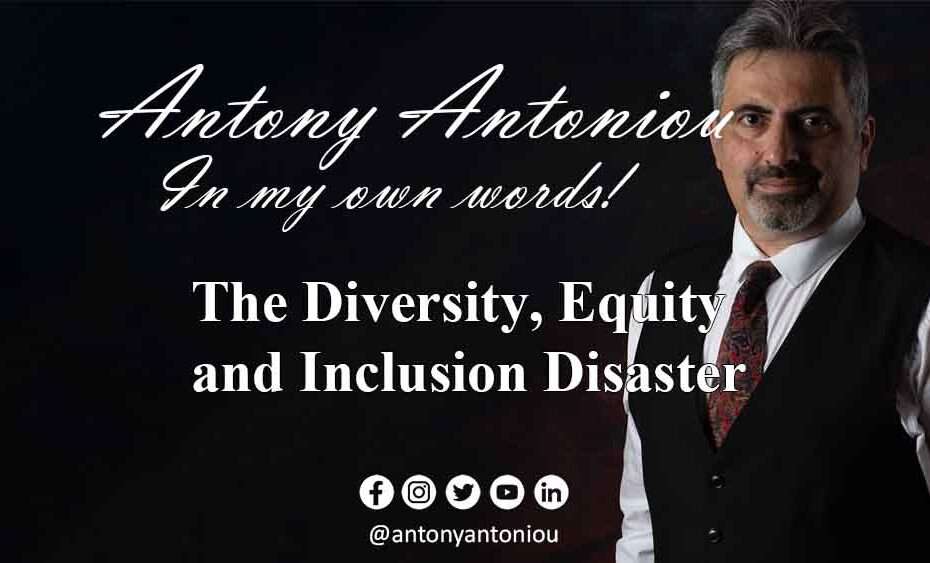The Diversity, Equity and Inclusion Disaster
The progressive left in the United States has hijacked the notions of diversity, equity and inclusion (DEI) and turned them into weapons of mass destruction. What used to be positive ideas about accepting people from all backgrounds has become a movement obsessed with unequal outcomes based on race, sex and gender identity. This ideological shift is creating division and harming institutions across the country.
What DEI Used to Mean
In the past, diversity meant that people of different backgrounds were free to join a group or organisation. It was about appreciating and accepting that people come from different races, religions, nationalities, etc. Equity used to refer to enforcing equal standards and treatment for all individuals and groups. The focus was on fairness and equal opportunity. Inclusion originally meant allowing people of every identity and background to participate in something. The goal was including everyone regardless of their differences.
How DEI is Used Now
In the context of the modern DEI movement, these terms have come to represent something very different. Rather than diversity for its own sake, the aim now is diversity of outcome. Equity no longer means equal standards but instead unequal standards designed to achieve equal results across groups. Inclusion has shifted from welcoming all people to selectively including or excluding based on race, gender and other attributes.
Essentially, DEI has become a movement focused on applying unequal standards in order to ensure preferential outcomes for certain demographic groups. It aims to advance non-whites, women, LGBTQ+ individuals and other “marginalised” groups at the expense of white heterosexual men. This is done regardless of qualifications, merit or other factors. Supporters believe such discriminatory practices are justified to counteract historical and ongoing oppression.
The Troubling Reality of Modern DEI
While cloaked in noble values, the DEI movement in practice operates quite differently. Some major concerns include:
– Open debate and discussion about DEI principles and policies is often suppressed. Questioning or critiquing them frequently leads to accusations of racism/sexism and punishment.
– There is no consistency – special preferences are given to some groups deemed oppressed while others are left out. There is also no defined endpoint when DEI goals are achieved.
– DEI breeds resentment as it judges and confers advantages based on immutable characteristics like race and sex. It often perpetuates victimhood mentalities rather than empowering marginalised groups.
– Discrimination against the “privileged” does not promote social harmony or equal dignity. Two wrongs do not make a right.
– Many marginalised groups oppose being used as pawns in the DEI agenda. Supporting equal treatment is not the same as supporting special treatment.
– Billions are spent on DEI programmes and administrators while the benefits are questionable. It has become a lucrative industry built on sowing social division.
The Spread of DEI Dogma
Due in part to fear of backlash, corporations, universities and other institutions have broadly embraced DEI ideology. They devote massive resources to DEI training and personnel. Corporations assume failing to demonstrate sufficient DEI bona fides will brand them as bigoted. But bending to DEI dictates also backfires, as it inherently confirms they must address systemic discrimination.
Meanwhile, DEI dogma has spread throughout academia. Youth are increasingly taught to view life through lenses of oppression and victimhood. This indoctrination separates people into “oppressor” and “oppressed” groups, fuelling resentment and straining social cohesion.
Restoring True Diversity, Equity and Inclusion
The solution begins with a return to the original, noble goals of diversity, equity and inclusion – appreciating our differences, upholding just standards, and welcoming all people to participate in society. To accomplish this, we must challenge the radical DEI agenda and make the following points:
– Treat people as individuals, not representatives of groups. Judge on character and merit, not race/sex.
– Promote equal standards and opportunities for all, not unequal ones.
– Appreciate diversity, don’t weaponize it. Unite based on shared values and humanity.
– Respect people’s dignity; don’t demean them as helpless victims needing special treatment.
– Foster open discussion, not suppression of dissenting views.
By standing up for these principles and rejecting DEI extremism, we can recover the real meaning of diversity, equity and inclusion. This will require courage to speak truth in the face of intimidation, but it offers the only path to a society where all people are truly judged by the content of their character.

